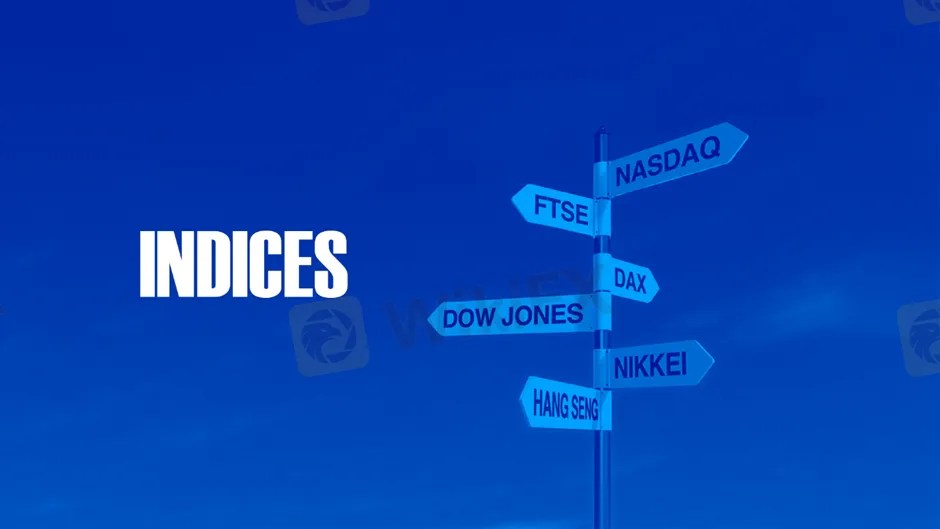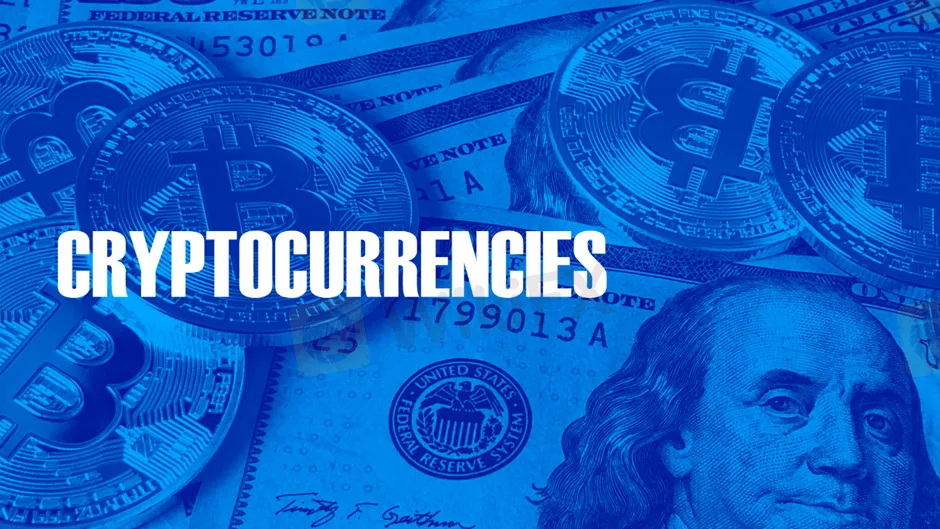Weekly News 2022/03/07-2022/03/11
Abstract:Index / Stocks / Crypto / Metals / Commodity & Futures / Forex

Affected by the ongoing tensions between Russia and Ukraine, the market has been volatile in recent weeks. The Dow fell 1.99% this week, recording its fifth straight weekly decline for the first time since May 2019. The S&P 500 fell 2.88% and the Nasdaq fell 3.53%. Technology and growth stocks led to losses as investors worried about the Ukraine conflict while attention turned to the Federal Reserve's policy meeting next week.
Market strategist Matt Maley said there was still too much uncertainty in the market after Wednesday's rally, and the market has struggled over the past few weeks. In economic data on Thursday and Friday, the preliminary reading of the University of Michigan's consumer confidence index fell further to 59.7 in March from 62.8 the previous month. Consumer one year inflation expectations surged to 5.4, the highest level since December 1981. The U.S Bureau of Labor Statistics reported that the consumer price index (CPI) rose more than expected 7.9% in February from a year earlier, the largest year-on-year increase since January 1982. The 0.8% month-on-month increase in the CPI in February meant that the real average hourly earnings of U.S workers fell 0.8% in February. Goldman Sachs economists lowered their forecast for real U.S. GDP growth in 2022 to 1.75% from 2.0% in a report released on Thursday. They see the risk of the U.S. economy slipping into recession in the coming year.

Google (NASDAQ: GOOGL) and Meta (NASDAQ: FB) are facing antitrust investigations by both EU and UK regulators over alleged illegal manipulation of the digital advertising market. The European Commission and Britain's Competition and Markets Authority (CMA) said on Friday that Google and Meta reached a secret deal in 2018 called Jedi Blue that could erode rivals' competitiveness in digital advertising.
Toyota Motor (TYO: 7203) said on Friday that its domestic production will be cut by up to 20% in the three months starting in April from its previous plan to ease pressure on suppliers from a shortage of chips and other parts. A Toyota spokesman said the production cuts were meant to ease the burden on suppliers. Suppliers have been forced to adapt to Toyota's repeatedly altered production plans as supply chain tensions have resulted in severe shortages of chips and other materials.
Xpeng Motors (NYSE: XPEV) announced that on March 11, the smart car Xpeng P5 officially opened for reservations in Denmark, the Netherlands, Norway and Sweden in four European countries. Link and mobile app to book online. At the same time, the first experience store directly operated by Xpeng Motors in the Netherlands opened.

On Wednesday, Biden signed an executive order requiring federal government departments to conduct a series of studies related to digital currencies. In addition to reviewing the regulatory risks associated with this alternative asset, the executive order also mentions exploring the creation of an official digital dollar.
Investment bank analyst Jonathan Peterson spoke highly of the cryptocurrency executive order signed by Biden in the report, saying that the executive order will fully support the encryption industry, including bitcoin miners, and try to allow the United States to gain global leading position in the “encrypted economy”. He also said, “We believe that the U.S government is now more formally involved in and supporting the digital asset industry, which is a positive for cryptocurrency mining companies.”
Entering 2022, as the geopolitical situation continues to be tense and global inflation remains high, investors demand for safe-haven has skyrocketed. Among them, buying cryptocurrencies anchored to gold has become a new safe-haven option. The market capitalization of PAX Gold (PAXG), Tether Gold (XAUT), and similar precious metal-backed cryptocurrencies has climbed as investors seek “decentralized inflation” in the cryptocurrency space, Arcane Research wrote in the report. “Rising gold prices have attracted more crypto investors to gold-backed cryptocurrencies as they allow crypto investors to spread inflation through the familiar crypto market infrastructure.”

Gold prices fell on Friday. Spot gold fell as much as 1.90% to $1,958.61 an ounce during the session, but gold prices recorded gains this week and rose sharply to around $1,988 in late trading. The safe-haven appeal of gold weakened after Russian President Vladimir Putin said progress in talks with Ukraine, and the possibility of an imminent U.S. interest rate hike also added to the pressure on the gold market. “Our negotiators told me that there are indeed some positive shifts,” Putin said during a meeting with Belarusian President Alexander Lukashenko but he did not provide any details.
Analyst Ole Hansen said in a note that the crisis in Russia and Ukraine will continue to support the prospect of higher precious metals prices, which could mean higher inflation, slower growth and fewer central bank rate hikes.
Amid a surge in U.S. inflation in February, there is a 94 percent chance the Fed will raise its benchmark overnight rate by at least 25 basis points on March 16, according to the CME Group's FedWatch tool. Gold is highly sensitive to rising US interest rates, as rising interest rates will increase the opportunity cost of holding non-interest-bearing gold, but investors flock to safe-haven assets due to the Ukraine crisis, which has led to a surge in gold prices. The cumulative increase in the past two weeks is currently about 5.4%.

On Friday, U.S oil rose nearly 3% in late trading to close at around $109 a barrel but fell more than 5% this week recording its biggest weekly drop since November last year, as traders assessed supplies disrupted by the conflict between Russia and Ukraine the outlook may improve.
Crude oil prices have soared since Russia conducted what it called a “special military operation.” Benchmark futures hit their highest level since 2008 this week before retreating sharply as some producers said they could increase supply.
Supply concerns intensified on Friday after talks aimed at restarting the 2015 Iran nuclear deal threatened to collapse after a last-minute request by Russia forced world powers to suspend talks.
UBS analyst Giovanni Staunovo said stalled talks in Iran were among the factors supporting the market, and market participants would now closely watch Russian export data to see how much supply was affected. Next week's focus will turn to oil market reports from the International Energy Agency (IEA) and the Organization of the Petroleum Exporting Countries (OPEC). Both groups said the market should be oversupplied this year.

The U.S. dollar rose on Friday, hitting its highest in five years against the safe-haven Japanese yen, while the Canadian dollar led gains among G-10 currencies, buoyed by stronger-than-expected jobs data from the country. The dollar index was up 0.60% at 99.11, with the greenback up 0.62% for the week and 2% last week, its biggest weekly percentage gain since April 2020.
The U.S. dollar index initially fell after Putin said in a meeting with Belarusian President Alexander Lukashenko that there had been “some positive changes” in talks with Ukraine and that talks were taking place almost daily. The U.S. dollar gradually resumed its gains after details; expectations that the U.S. Federal Reserve will begin raising interest rates at the end of its March 15-16 policy meeting to curb inflation also supported the greenback.
The dollar hit a five-year high of 117.35 against the yen with the U.S. economy looking set to outperform as people focus on which economies are poised to deal with widespread inflationary pressures, said Ed Moya, senior economist. That's why you see USD/JPY doing well in these safe-haven times. While the Fed will almost certainly raise interest rates from their pandemic-era lows, the Bank of Japan, which also holds a policy meeting next week, will remain an outlier.
Buy or sell or copy trade crypto CFDs atwww.oneproglobal.com
The foregoing is a personal opinion only and does not represent any opinion of OnePro Global, nor is there any guarantee of reliability, accuracy or originality in the foregoing.
Forex and CFD trading may pose a risk to your invested capital.
Before making an investment decision, investors should consider their own circumstances to assess the risks of investment products. If necessary, consult a professional investment advisor.
www.oneproglobal.com
Read more

Weekly News 2024/02/26-2024/03/01
Index / Stocks / Crypto / Metals / Commodity & Futures / Forex

Weekly News 2024/02/19-2024/02/23
Index / Stocks / Crypto / Metals / Commodity & Futures / Forex

Weekly News 2024/02/12-2024/02/16
Index / Stocks / Crypto / Metals / Commodity & Futures / Forex

Weekly News 2024/02/05-2024/02/09
Index / Stocks / Crypto / Metals / Commodity & Futures / Forex
WikiFX Broker
Latest News
If you haven't noticed yet, the crypto market is in free fall, but why?
Renewable Grid Integration: Economics and Technology
Gold Rally Validated as Miners Forecast Doubled Earnings
US Labor Market 'Noise' vs. Reality; Trump Trade Agenda Looms Over Outlook
Emerging Markets: Nigeria's Debt Market Valuation Hits N99.3 Trillion
JPY In Focus: Takaichi Wins Snap Election to Become Japan's First Female Leader
Amaraa Capital Scam Alert: Forex Fraud Exposure
Vebson Scam Exposure: Forex Withdrawal Failures & Fake Regulation Warning
EGM Securities Review: Investigating Multiple Withdrawal-related Complaints
Galileo FX Exposure: Allegations of Fund Losses Due to Trading Bot-related Issues
Rate Calc

